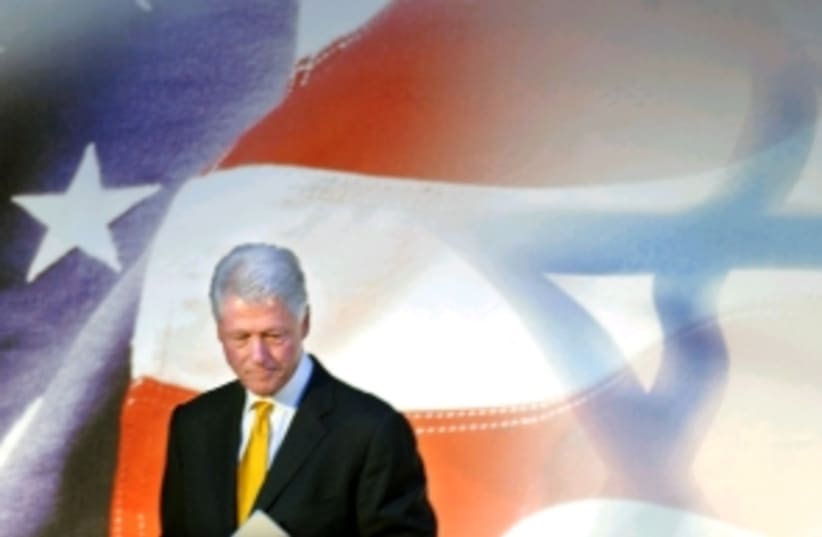| More about: | Bill Clinton, Yitzhak Rabin, Yasser Arafat, Moshe Katsav |
Clinton: Unilateralism not the answer
At speech in J'lem hotel, former president calls on the Diaspora to aid Gaza.


| More about: | Bill Clinton, Yitzhak Rabin, Yasser Arafat, Moshe Katsav |